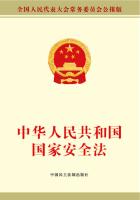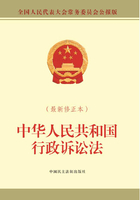Ath. Next follows the principle that the noble should rule overthe ignoble; and, thirdly, that the elder should rule and theyounger obey?
Cle. To be sure.
Ath. And, fourthly, that slaves should be ruled, and their mastersrule?
Cle. Of course.
Ath. Fifthly, if I am not mistaken, comes the principle that thestronger shall rule, and the weaker be ruled?
Cle. That is a rule not to be disobeyed.
Ath. Yes, and a rule which prevails very widely among all creatures,and is according to nature, as the Theban poet Pindar once said; andthe sixth principle, and the greatest of all, is, that the wise shouldlead and command, and the ignorant follow and obey; and yet, O thoumost wise Pindar, as I should reply him, this surely is not contraryto nature, but according to nature, being the rule of law over willingsubjects, and not a rule of compulsion.
Cle. Most true.
Ath. There is a seventh kind of rule which is awarded by lot, and isdear to the Gods and a token of good fortune: he on whom the lot fallsis a ruler, and he who fails in obtaining the lot goes away and is thesubject; and this we affirm to be quite just.
Cle. Certainly.
Ath. "Then now," as we say playfully to any of those who lightlyundertake the making of laws, "you see, legislator, the principlesof government, how many they are, and that they are naturallyopposed to each other. There we have discovered a fountain-head ofseditions, to which you must attend. And, first, we will ask you toconsider with us, how and in what respect the kings of Argos andMessene violated these our maxims, and ruined themselves and the greatand famous Hellenic power of the olden time. Was it because they didnot know how wisely Hesiod spoke when he said that the half is oftenmore than the whole? His meaning was, that when to take the wholewould be dangerous, and to take the half would be the safe andmoderate course, then the moderate or better was more than theimmoderate or worse."Cle. Very true.
Ath. And may we suppose this immoderate spirit to be more fatal whenfound among kings than when among peoples?
Cle. The probability is that ignorance will be a disorder especiallyprevalent among kings, because they lead a proud and luxurious life.
Ath. Is it not palpable that the chief aim of the kings of that timewas to get the better of the established laws, and that they werenot in harmony with the principles which they had agreed to observe byword and oath? This want of harmony may have had the appearance ofwisdom, but was really, as we assert, the greatest ignorance, andutterly overthrew the whole empire by dissonance and harsh discord.
Cle. Very likely.
Ath. Good; and what measures ought the legislator to have then takenin order to avert this calamity? Truly there is no great wisdom inknowing, and no great difficulty in telling, after the evil hashappened; but to have foreseen the remedy at the time would have takena much wiser head than ours.
Meg. What do you mean?
Ath. Any one who looks at what has occurred with you Lacedaemonians,Megillus, may easily know and may easily say what ought to have beendone at that time.
Meg. Speak a little more clearly.
Ath. Nothing can be clearer than the observation which I am about tomake.
Meg. What is it?
Ath. That if any one gives too great a power to anything, toolarge a sail to a vessel, too much food to the body, too muchauthority to the mind, and does not observe the mean, everything isoverthrown, and, in the wantonness of excess runs in the one case todisorders, and in the other to injustice, which is the child ofexcess. I mean to say, my dear friends, that there is no soul ofman, young and irresponsible, who will be able to sustain thetemptation of arbitrary power-no one who will not, under suchcircumstances, become filled with folly, that worst of diseases, andbe hated by his nearest and dearest friends: when this happens, hiskingdom is undermined, and all his power vanishes from him. Andgreat legislators who know the mean should take heed of the danger. Asfar as we can guess at this distance of time, what happened was asfollows:-Meg. What?
Ath. A God, who watched over Sparta, seeing into the future, gaveyou two families of kings instead of one; and thus brought you morewithin the limits of moderation. In the next place, some humanwisdom mingled with divine power, observing that the constitution ofyour government was still feverish and excited, tempered your inbornstrength and pride of birth with the moderation which comes of age,making the power of your twenty-eight elders equal with that of thekings in the most important matters. But your third saviour,perceiving that your government was still swelling and foaming, anddesirous to impose a curb upon it, instituted the Ephors, whosepower he made to resemble that of magistrates elected by lot; and bythis arrangement the kingly office, being compounded of the rightelements and duly moderated, was preserved, and was the means ofpreserving all the rest. Since, if there had been only the originallegislators, Temenus, Cresphontes, and their contemporaries, as far asthey were concerned not even the portion of Aristodemus would havebeen preserved; for they had no proper experience in legislation, orthey would surely not have imagined that oaths would moderate ayouthful spirit invested with a power which might be converted intoa tyranny. Now that God has instructed us what sort of governmentwould have been or will be lasting, there is no wisdom, as I havealready said, in judging after the event; there is no difficulty inlearning from an example which has already occurred. But if any onecould have foreseen all this at the time, and had been able tomoderate the government of the three kingdoms and unite them into one,he might have saved all the excellent institutions which were thenconceived; and no Persian or any other armament would have dared toattack us, or would have regarded Hellas as a power to be despised.
Cle. True.














